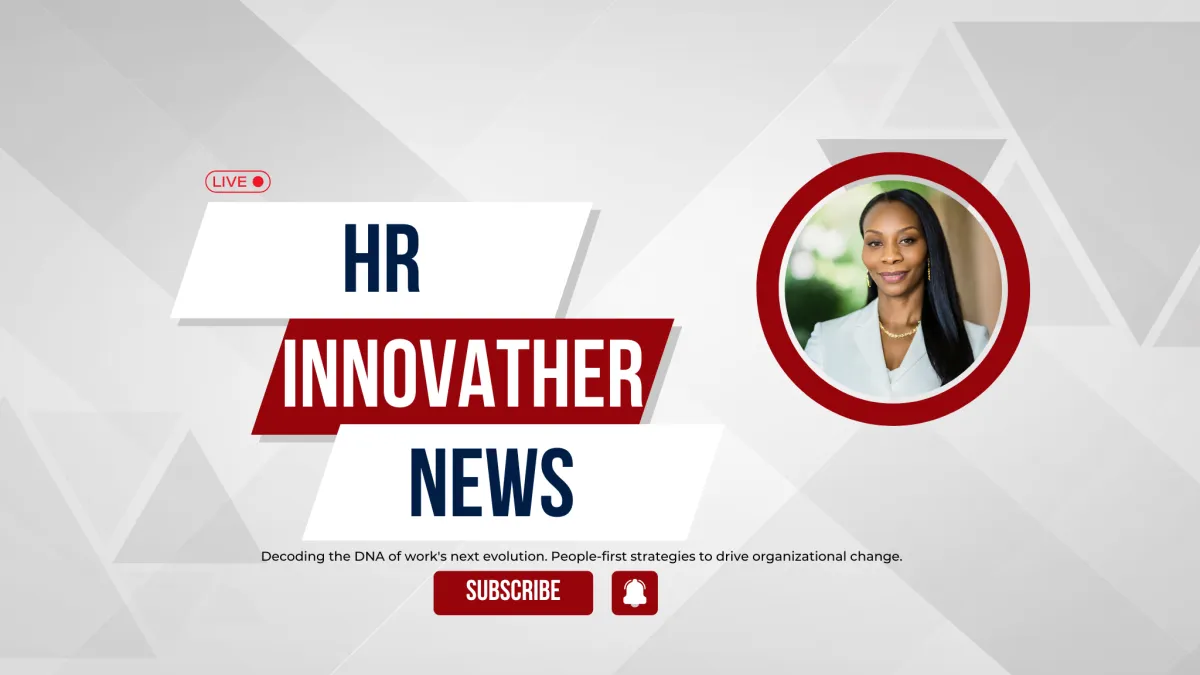

Why Climbing the Corporate Ladder No Longer Appeals to American Workers
For decades, climbing the corporate ladder symbolized success in America. The pursuit of prestigious titles, corner offices, and hefty paychecks was deeply embedded in the American Dream. Yet, in the wake of the pandemic, that dream is shifting. Many professionals are actively avoiding promotions, declining offers for higher roles, or even requesting demotions to positions with fewer responsibilities.
What’s behind this surprising trend? A combination of workplace burnout, shifting priorities, and a reevaluation of what "success" truly means is reshaping the aspirations of the American workforce.
The COVID-19 pandemic upended the way we work. As offices shut down and remote work became the norm, employees gained a new perspective on the role of work in their lives. Without long commutes or rigid schedules, many Americans discovered the benefits of a healthier work-life balance.
However, promotions often come with increased workloads, longer hours, and heightened stress—things employees are now more reluctant to take on. The fear of losing newfound flexibility and family time has made many think twice about climbing the corporate ladder.
Burnout and Mental Health Challenges
Burnout has reached epidemic levels. A 2022 Gallup study found that 76% of employees experience burnout at least sometimes, with 28% feeling it “very often.” Higher roles often mean greater responsibilities, tighter deadlines, and more pressure—all of which exacerbate burnout.
The stigma around mental health is also diminishing, empowering workers to prioritize their well-being over career progression. Rather than chasing promotions, many are choosing to safeguard their mental health by staying in roles they find manageable and fulfilling.
While promotions typically come with salary increases, they also bring hidden costs:
Time: More hours in meetings and less time for personal pursuits.
Stress: Greater accountability and pressure to deliver.
Limited autonomy: High-level roles can often mean more oversight and bureaucracy.
For many, these costs outweigh the benefits, especially when they consider the financial trade-offs. The allure of a bigger paycheck is less appealing when the additional income doesn’t significantly improve quality of life, especially in the face of rising inflation and stagnant wages in many sectors.
The pandemic prompted a collective reevaluation of priorities. Workers are increasingly seeking meaning and fulfillment in their lives, and for many, this doesn’t align with the traditional corporate ladder.
Millennials and Gen Z workers, in particular, are driving this shift. They prioritize flexibility, personal growth, and purpose over titles and paychecks. For them, success is defined by quality of life, not job titles.
Toxic work environments are another factor. Many workers have seen colleagues in leadership roles struggle under the weight of unrealistic expectations, micromanagement, or lack of support. These observations make the idea of a promotion far less appealing.
Additionally, the lack of proper support systems for those promoted—such as leadership training or adequate staffing—creates a deterrent for ambitious employees.
The rise of "quiet quitting" (doing only what’s required in a job without taking on extra responsibilities) is another reflection of this trend. Employees are actively avoiding additional tasks or visibility that might lead to a promotion.
Many are choosing to stay under the radar to maintain their current roles and responsibilities, resisting the pressure to constantly do more.
Why Some Are Requesting Demotions
In some cases, employees are going even further by asking for demotions. These requests are often driven by:
Desire for reduced stress: Stepping down to a less demanding role allows employees to focus on personal well-being.
Need for flexibility: Lower-level positions often offer more control over schedules.
Avoidance of toxic environments: Leaving a leadership role can mean escaping office politics and interpersonal conflicts.
What Employers Can Do
For organizations, this trend is a wake-up call. If companies want to retain and motivate their talent, they must adapt to the changing needs of their workforce.
Strategies to Consider:
Redefine promotions: Offer pathways to advancement that don’t require sacrificing work-life balance.
Focus on mental health: Provide resources such as therapy, flexible work arrangements, and realistic workloads.
Create supportive environments: Offer leadership training, mentorship programs, and robust onboarding processes for promoted employees.
Value contributions over titles: Recognize employees for their work without forcing them into roles they don’t want.
The traditional corporate ladder is losing its appeal as Americans prioritize well-being, flexibility, and meaningful work over titles and paychecks. This shift signals an urgent need for companies to rethink how they define and reward success.
By aligning workplace practices with employee values, organizations can not only retain their workforce but also create environments where everyone can thrive—whether or not they’re aiming for the corner office.
Fractional HR to Go: Strategic Leadership On Demand
Seek Ameena Guidance

Are you seeking expert HR guidance to enhance your business's human resources strategy without the commitment of a full-time HR executive hire? Need a seasoned Fractional HR Consultant to provide strategic insights or support your HR initiatives? Look no further than our Fractional HR Consulting and HR Leadership Support service!
Tailored for well-funded startups, non profits and medium to large organizations, our Fractional HR service offers the strategic insight and experience of an external HR executive, injecting vitality into your HR initiatives.
Ameena's Unique Approach:
Unlike traditional consulting firms, our Fractional HR service focuses on delivering unbiased, expert advice tailored to your organization's best interests. With extensive experience in HR leadership, Ameena excels in collaborating with your existing teams to bridge gaps, unify efforts, and drive toward a shared vision for HR success.
Ameena's Promise:
Unlike traditional consulting firms, our Fractional HR service focuses on delivering unbiased, expert advice tailored to your organization's best interests. With extensive experience in HR leadership, Ameena excels in collaborating with your existing teams to bridge gaps, unify efforts, and drive toward a shared vision for HR success.
Personalization & Discovery:
Each organization is unique, and we believe in personalized solutions. Let's start with a discovery call to explore how our Fractional HR service can meet your organization's specific needs.
Fees:
Fees range from $5,000 to $20,000+ per month, depending on the scope and complexity of services provided.

Benefits
Executive-level Insight:
Access the strategic foresight and expertise of a seasoned HR executive to steer your HR initiatives toward success.
Enjoy top-tier HR leadership customized to your company's needs without the overhead costs of a full-time executive hire.
From refining your HR processes to fostering a positive workplace culture and aligning HR strategies with business objectives, experience comprehensive HR growth under expert guidance.
SERVICES SCOPE

HR Audit
A comprehensive assessment of your HR processes, policies, and practices to identify areas for improvement.

Strategic Alignment
Align HR initiatives with business goals and objectives to drive organizational success.

Change Management Guidance
Assist in managing organizational change effectively, including digital transformation initiatives and cultural shifts.Talent

Acquisition and Development
Develop strategies for attracting, retaining, and developing top talent to support business growth.

Integration & Training
Assist in integrating HR systems and software, as well as providing training and development opportunities to enhance HR competencies within your team.

Brand Culture Development
Cultivate a strong company culture aligned with your brand values to enhance employee engagement and retention.



